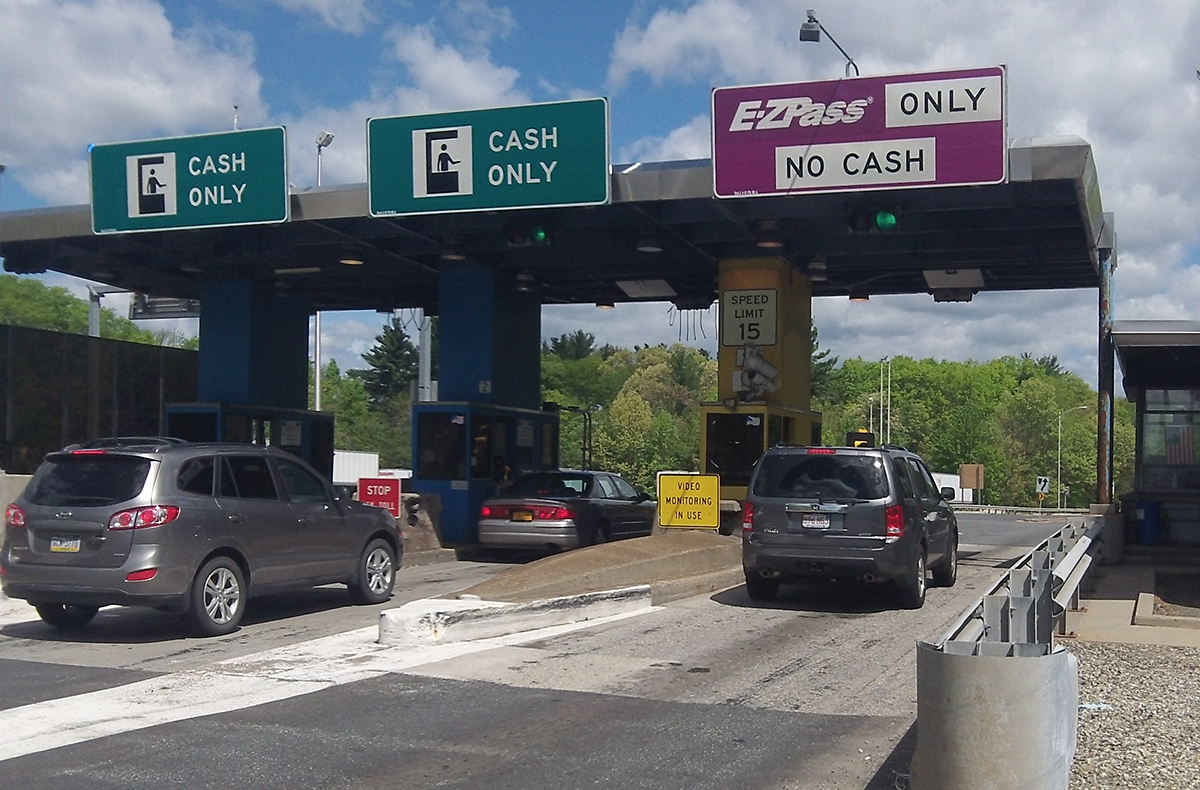Commuter Learns ‘Pitfalls’ of the E-ZPass System the Hard Way

Image via MassDOT blog
A Somerville woman who racked up $10,000 in toll violations from the Massachusetts Department of Transportation, after making frequent trips between her home and New Hampshire, wants to warn other drivers about her mistakes so they can avoid a similar bank-breaking headache when the state switches over to an all-electronic highway system in two years.
Sarah Argeropoulos wrote a blog post last week that was featured in the Washington Post’s “Post Everything” section, detailing her experience with what she referred to as MassDOT’s “broken and unjust system,” after she passed through 153 toll booths during the course of five months without realizing that her account was defunct.
“At about $1.75 per toll, I expected E-ZPass would deduct the fees from my bank account automatically, as it typically does. Instead, the state of Massachusetts slapped me with $10,000 in fines,” she wrote.
According to MassDOT’s fine schedule, the initial penalty for first time toll violations is the cost of the toll, plus a small administrative fee. Officials said any subsequent toll violations—this means passing through if you haven’t paid your previous fines—or toll violations that are not resolved, increase to $50 after 60 days, and then to $90 30 days thereafter.
Argeropoulos, an E-ZPass user for the last 10 years, said her trips were a mix between her daily local commute, and visits to see her ailing father, who had terminal cancer, in New Hampshire.
She said she blames the hefty fines on a few varying factors. According to Argeropoulos, sometime in October 2013, the credit card number attached to her E-ZPass account was changed without her knowledge.
“Possibly by a glitch, a hacker, or some other unexpected problem,” she said. “I was never notified. Unaware of the delinquent account, my sister and I drove to work as usual, and made frequent trips back and forth to our parents’ home.”
She also said she moved, but forgot to change her address with the Registry of Motor Vehicles, so warning letters sent to her about the violations never made it to her doorstep.
Eventually, after haggling with MassDOT representatives about the fines and explaining what happened, Argeropoulos’ $10,000 bill was reduced to $4,560.
In hindsight, Argeropoulos took responsibility for the fines, placing much of the blame on herself, and chalking it up to her failure to pay attention to the yellow “warning” signs that blink when people pass through tolls, telling them to contact MassDOT because there’s a problem with their account.
While she admitted that she should have been more careful about making sure all of her information was in order, Argeropoulos said the burden of the fines still weighs heavy on her bank account, since she can’t renew her registration until they’re paid off in full.
That’s why Argeropoulos is using the mishap as an opportunity to let other drivers steer clear of similar follies.
“Certainly, I made mistakes,” she wrote. “I wasn’t monitoring my account closely to make sure E-ZPass tolls were being deducted, and I wasn’t aware that I had to change my address with the RMV in addition to E-ZPass. And as I passed through certain toll booths at 25 miles per hour, I missed the yellow light that flashed. These are mistakes that I own up to and should pay for.”
The warning comes at a time when more people are starting to rely on E-ZPass access, and less on paying cash for tolls.
In July, MassDOT changed the Tobin Bridge to an all-electronic tolling system, with plans to install similar systems statewide by the summer of 2016, eliminating the need for booth workers, and allowing drivers to pass through the tolls without slowing down.
Since switching the Tobin, there have been 79,204 new E-ZPass transponders issued statewide, and 42,591 new E-ZPass accounts activated, according to MassDOT.
To avoid the bills from piling up like they did for Argeropoulos, MassDOT spokesman Michael Verseckes said people with transponders should treat their E-ZPass accounts like they would with any other bill, be it a smartphone, gas, electric, or cable bill, by making certain their information is accurate in the event they move or get a new credit card.
“It’s incumbent upon an individual to keep that information up to date like any other credential that would need to follow them to their next address. This has to be among those,” said Verseckes.
After dealing with the initial shock of being notified that she owed the transportation agency $10,000, and later winding through the bureaucratic maze of information to try and settle her debts, Argeropoulos had similar advice.
“Change your address on file with the RMV within 60 days of moving, be vigilant about checking credit card information monthly in your account, call immediately if you have seen a yellow light as you pass through the toll, and hope if you are ever in this situation, that your honest mistakes will be believed by those in power,” she told Boston.

